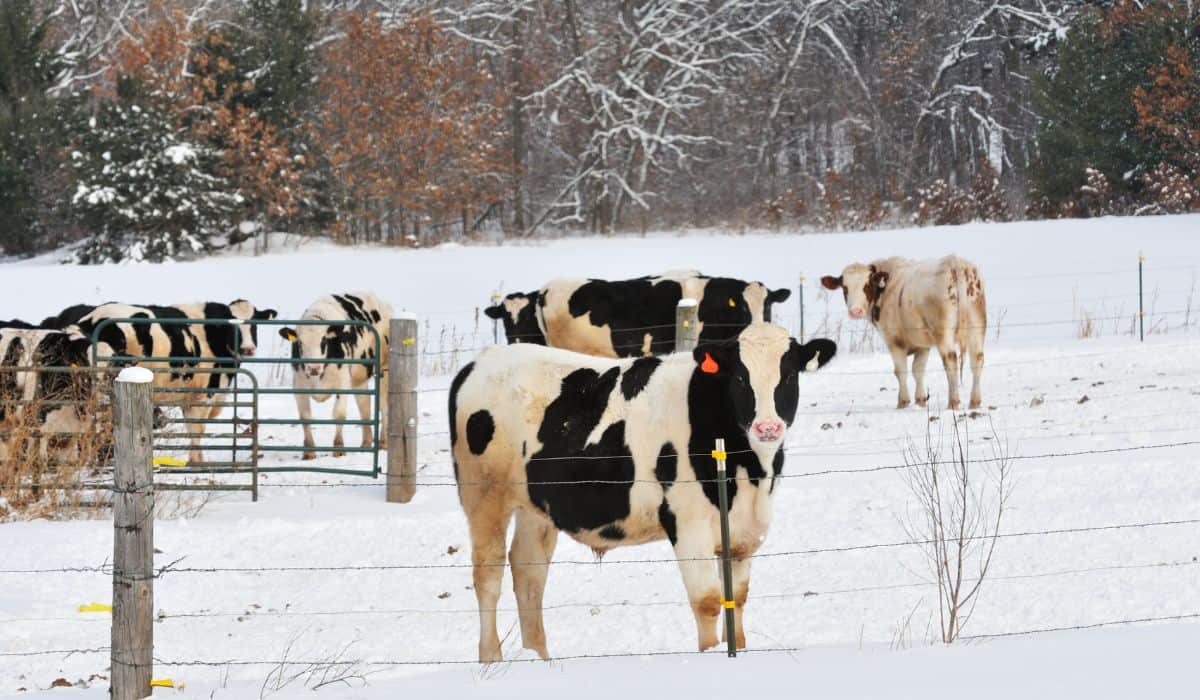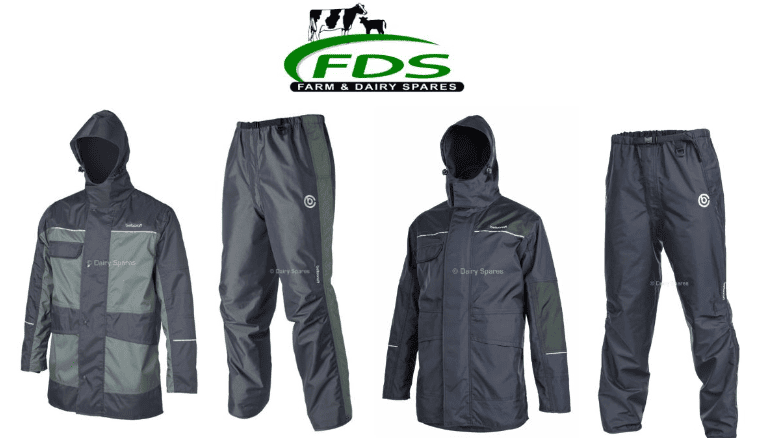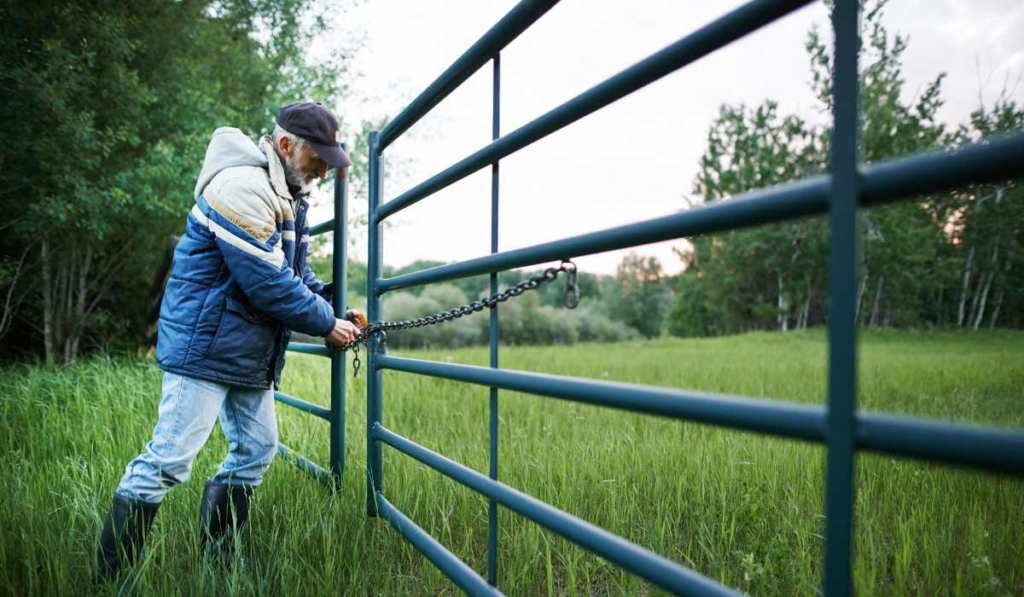Uncategorised
Winter Farm Safety: Is Your Dairy Ready For Winter?
How Important is Farm Safety on Your Farm?
The bite of a harsh Irish winter is something that any seasoned farmer knows well. The icy winds howling across the fields, the frost clinging stubbornly to farm machinery, and cattle huddling together for warmth are all familiar sights. These trying conditions make winter farm safety an absolute necessity. This post will guide you through the critical aspects of winter farm safety, ensuring the well-being of your livestock, equipment, and most importantly, yourself.
Weather Preparedness
As the seasons shift and temperatures drop, your dairy farm faces a barrage of challenges. Winter weather, in its various forms, can pose significant risks to both you and your livestock. The health and safety authority recommends several measures to safeguard the farm against harsh winter conditions such as snow and frost. These include:
- Safeguarding water supplies
- Draining milking equipment
- Installing frost protection heaters
- Checking antifreeze levels in farm vehicles
- Applying grit to pathways and yard surfaces
The farmyard also requires attention and maintenance. Cleaning and salting areas around the farmyard can prevent many accidents and provide safer access to farm buildings and livestock. Ensuring enough supplies of water, fuel, and animal feed is another key aspect. Having an adequate amount of grit and sand is also important for dealing with inclement weather. Moreover, winter brings an increased risk of fires. Remember to park vehicles away from combustible materials, keep straw and hay away from electrical components or lighting, and relocate flammable materials away from livestock buildings and houses. Electrical safety should be a top priority during winter.
Mitigating the risk of farm accidents is a significant part of winter safety on the farm. The colder temperatures pose increased hazards not just to you but to your livestock as well.

Farming Equipment Check and Maintenance
Winter places extra stress on farm equipment, and a breakdown in the middle of a storm or flooding can be much more than an inconvenience. It can lead to delays in farm operations, endanger your livestock, and even risk your safety. Before the onset of winter, you should conduct a thorough inspection and maintenance of your farm equipment, including tractors and heaters.
Electrical equipment, in particular, requires special attention during the winter months. Here are some important safety tips to keep in mind:
- Check that electrical fittings are not damaged and have the correct IP ratings.
- Ensure the RCD (residual current device) is functioning correctly by running a regular check. This safety device cuts off electricity automatically if a fault occurs, providing a crucial layer of protection.
- When using portable electrical tools, check leads for damage.
- Avoid handling electrical equipment with wet hands or near water.

Livestock Care
Winter can be a challenging time for your livestock. Lower temperatures, harsh weather, and shorter days can stress animals and increase their nutritional needs. Sheltering livestock during winter is vital to protect them from severe weather conditions. You need to ensure that your livestock are well cared for, with a focus on:
- Providing the right nutrition
- Maintaining their health
- Monitoring their water intake
- Providing adequate shelter and bedding
- Protecting them from extreme cold and wind
These measures will help keep livestock healthy and comfortable during the winter months.
Disease prevention is another critical aspect of livestock care during winter. Cold weather can increase the risk of certain diseases, and measures should be taken to keep these in check. Installing bait points around the farm for effective rodent control can be an effective measure to prevent the spread of disease among livestock during winter.
Before winter sets in, it’s also important to ensure that farm buildings, such as dairy buildings and sheds, are maintained in a clean condition to accommodate potential full-time housing for cows due to sudden weather changes. Additionally, any damaged slats in sheds should be promptly replaced to ensure the provision of safe shelter for the animals.

Adequate Lighting
Winter brings shorter days and longer nights, which can pose challenges to farm operations. Safety relies heavily on adequate lighting, especially when performing farming activities in limited daylight hours. During the inspection of lights on a farm, it is crucial to:
- Verify the operational status of all lights
- Assess their capability to provide adequate illumination
- Ensure that regular walkways are well-lit without any blown bulbs
Another crucial aspect of farm safety is visibility among workers. Wearing hi-vis jackets can significantly enhance visibility, particularly important as farm work clothes are often dark and can easily blend into the surroundings, especially during winter’s reduced lighting conditions. It is also important to wear body warmers to stay warm and protected during winter farm work.
Safe Handling of Chemicals
Cold temperatures can affect the properties of certain chemicals, and icy conditions can increase the risk of spills. Following recommended protocols for safe storage and handling of chemicals on Irish farms is vital during winter conditions.
You need to follow several safety measures when handling chemicals on your farms during winter. This includes:
- Storing chemicals in a secure and well-ventilated area away from heat sources and open flames
- Keeping chemicals in their original containers with clear labels and intact lids
- Separating incompatible chemicals to prevent accidental reactions
- Using appropriate farm clothing such as safety work gloves, apron, and boots when handling chemicals
- Regular inspections of the chemical storage areas for leaks, spills, or damage
- Training your guys on safe handling practices and emergency procedures related to chemicals
Many of these may not be applicable to you but these measures are necessary to ensure the safety of both the farmers and the environment.
Failure to adhere to safe storage and handling practices for chemicals can have severe consequences, including:
- Health effects such as headaches, skin irritation, poisoning, nausea, respiratory illnesses, burns, and cancers
- Severe burns from corrosive chemicals
- Potential damage to human health due to long-term exposure
It is important to prioritise safety when working with chemicals to reduce risks and prevent them.
Infrastructure Inspection
Farm infrastructure, including fences and barns, is key to maintaining the safety and efficiency of farm operations. Neglected infrastructure can lead to accidents and damage, particularly during the harsh winter months. Therefore, it is crucial to inspect and repair farm infrastructure before winter sets in. This can help reduce the number of farm deaths caused by accidents related to poor infrastructure.
To thoroughly inspect and repair a barn’s infrastructure for winter, it’s important to:
- Thoroughly check the fan shutters/louvres to ensure they are clean and operational
- Examine the fan housing/frames for any leaks and address any issues
- Assess the condition and size of existing buildings such as barns, outbuildings, sheds, and houses to ensure they are well-maintained and appropriately sized.
- Also, make sure your handling equipment is up to the winter challenge. Having gates swinging, have bolts and latches working so that your livestock can efficiently move from the pen to the handling unit and back.
For fencing equipment and accessories, click here.

Emergency Preparedness
Emergencies such as fire are unpredictable, hence preparedness is key. Having an emergency plan in place can be the difference between a manageable situation and a catastrophe. The plan should encompass protocols, designated roles, and assigned responsibilities that must be adhered to during an emergency.
The emergency plan should include:
- Identifying potential emergencies
- Specifying quantities and locations of essential supplies
- Laying out emergency escape procedures and evacuation routes
- Including a communication plan with all necessary contact information
It is just as important to ensure that everyone on the farm is trained in the plan.
To establish a comprehensive evacuation procedure, farmers should:
- Identify potential hazards
- Create a farm map with escape routes
- Determine gate usage
- Train someone familiar with the farm for emergencies
- Ensure feed reserves
- Regularly review and update the plan.
The emergency contact list should encompass responsible individuals ashore, all staff including those first-aid trained, external advisers, consultants, and important contact numbers.
Wear Proper Farm Clothing
Proper clothing is a necessity for farm work in winter. Cold-related illnesses and injuries can be prevented by wearing suitable farm clothing during winter. Choosing the right clothing can provide protection against the elements, keep you comfortable during long hours of work, and most importantly, keep you safe.
Here are some key pieces of clothing to consider:
- Durable outerwear that can withstand harsh weather conditions
- High-visibility clothing that ensures you’re seen in low-light conditions
- Insulated gloves and hats to keep your extremities warm
- Layered clothing to trap heat and regulate body temperature
- Waterproof boots to keep your feet dry and warm
Each piece of clothing plays a critical role in your safety and productivity.
Footwear is another important aspect of farm winter clothing. It should be warm, waterproof, and provide good traction to prevent slips and falls on icy or wet surfaces. Gloves should be insulated to keep your hands warm and dry, but flexible enough to allow you to perform your tasks efficiently. Headgear is also essential to prevent heat loss, as a significant amount of body heat is lost through the head.
For those in search of appropriate winter farm clothing, Betacraft offers a wide range of options. They provide quality farm clothing that is designed to withstand the harsh conditions of winter farming, ensuring that you’re well-equipped to face the challenges of the season.
Winter brings a unique set of challenges to farming. From preparing your farm for harsh weather conditions, maintaining your equipment, caring for your livestock, ensuring adequate lighting, handling chemicals safely, inspecting your infrastructure, and preparing for emergencies, to wearing the right farm clothing, each aspect plays a critical role in ensuring your safety, the wellbeing of your livestock, and the smooth operation of your farm.
However, with the right preparations and precautions, you can navigate the winter season with confidence and keep your farm operating smoothly. Remember, safety should always be your top priority, regardless of the season. As the old saying goes, “Prepare for the worst, and hope for the best.” With the guidance provided in this post, you’re well on your way to a safe and productive winter on your farm.
I hope we at Farm and Dairy Spares have helped you prepare your dairy farm for the upcoming winter months. Why not check our website https://www.farmanddairyspares.ie/ and shop for something that might help you be winter-ready.
Also, check out our Winter Housing Products

Frequently Asked Questions
How can you be safe on a farm?
Be sure to maintain a safe distance from livestock, keep proper fencing and gates, supervise children when they are around animals, and make sure they wash their hands afterwards. This will help you stay safe on a farm.
What is the farm safety plan in Ireland?
The Farm Safety Plan in Ireland aims to reduce fatalities, ill health and serious injuries in the agriculture sector by focusing on five critical areas and implementing specific actions between 2021 and 2024.
Why is health and safety important on farms?
Health and safety are critically important on farms as it is the responsibility of farmers to ensure the well-being of all workers and those who may be affected by the activities they carry out. Proper health and safety practices protect everyone involved and keep the farm operating safely and efficiently.
What are some measures to safeguard a farm against harsh winter conditions?
To safeguard a farm against harsh winter conditions, water supplies should be secured, milking equipment should be drained, frost protection heaters should be installed, antifreeze levels should be maintained in farm vehicles, and grit should be applied to pathways and yard surfaces.


